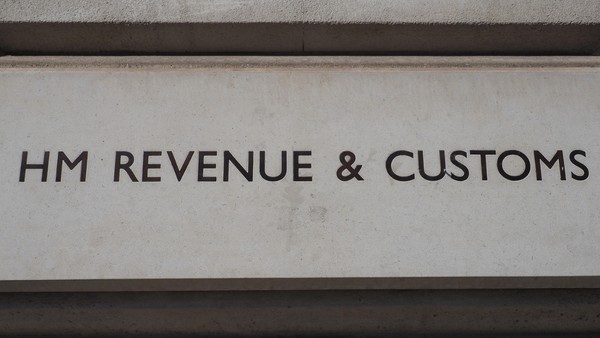Author
Background
The Trust Registration Service (TRS) is a register of the beneficial ownership of trusts set up in 2017 as part of the implementation of EU anti-money laundering directives with the aim of providing greater transparency around the ownership of trust assets and preventing trusts being used as vehicles for activities such as money laundering or terrorist financing. It requires trustees to register the trusts they administer with HMRC, a process which requires certain information to be provided and kept up-to-date.
Originally, only trusts which were subject to certain UK tax liabilities were obliged to register. However, regulations which came into effect in October 2020 extended these rules to include all UK express trusts and certain non-UK trusts, whether they have a UK tax liability or not. This note provides a high-level summary of the rules, however, these rules are complicated and trustees are advised to seek specific legal advice.
Which trusts must be registered?
All UK express trusts must now be registered on TRS unless they are excluded from registration (see below). As a general rule any express trust that is liable to UK tax must register on TRS.
Non-UK express trusts which have at least one UK resident trustee must also register (unless they are specifically excluded (see below)) if the trustees either directly acquire land in the UK or enter into a business relationship with a UK relevant person on or after 6 October 2020.
Non-UK express trusts which have no UK resident trustees must register (unless they are specifically excluded (see below)) if the trustees acquire land in the UK.
An express trust is one created deliberately by the settlor, usually in writing, and can either take effect during the settlor’s lifetime or on the settlor’s death via their will. A trust which arises by operation of law (for example, on an intestacy or bankruptcy) will not be an express trust, because it does not result from the clear intent or decision of a settlor to create a trust.
It should be noted that a reporting requirement is imposed if a trust falls within the scope of the rules before 9th February 2022. Any attempt to re-organise a trust after 6 October 2020 (when the rules came into force) so that it fits within one of the prescribed exclusions will therefore be unsuccessful in avoiding a registration requirement, as the criteria will still be met.
Trustee obligations
Trustees are obliged to keep written records, provide details on the beneficial ownership of the trust to HMRC and to keep this information updated. The type of information required includes details of the settlor(s) and beneficiaries (e.g. name, date of birth, address, nationality and country of residence), details of any charity that is a beneficiary and details of anyone who has control over the trust (including protectors, enforcers, advisors etc).
Penalties
There are two administrative offences that relate to the TRS, for which trustees may be subject to penalties, namely the failure to register by the relevant deadline and a failure to keep the register updated on time. It is therefore important to ensure that all registrable trusts are reported and any changes to the information that has been provided kept up-to-date within the prescribed time limits and deadlines.
TRS registration deadlines
Taxable trusts:
- created prior to 6 April 2021 which are liable to pay income tax or capital gains tax for the first time must be registered by 5 October after the tax year in which the liability arose. For other taxes (e.g. inheritance tax, SDLT) the trust must be registered by 31 January after the tax year in which the liability occurred.
- created on/after 6 April 2021, must register by 1 September 2022 where a UK tax liability arose prior to 4 June 2022, otherwise within 90 days of the date the liability arose.
Non-taxable trusts:
- where the trust falls within the scope of the rules before 4 June 2022 the deadline to register is 1 September 2022.
- trusts which become registrable on or after 4 June 2022 must be registered within 90 days.
Non-UK taxable trusts which are registrable that were in existence on or after 6 October 2020 must register by 1 September 2022. This includes trusts in existence on or after 6 October 2020 but which have since ceased.
The TRS record must be updated within 90 days of the date the trustees became aware of a change to the trust details or beneficial ownership. If the trust is taxable then an annual declaration must be made by 31 January.
Which express trusts are excluded?
The following are examples of types of trust that do not need to register under TRS under current rules. Please note that this list is not exhaustive and legislation may need to be complied with in order for a trust to fall within the scope of any exclusion:
- Will trusts: created on death, that only receive assets from the estate and are wound up within two years of death. However, if the trust is still in place after two years it will need to be registered;
- Pilot trusts: holding property valued at no more than £100 and came into existence before 6 October 2020;
- Co-ownership trusts: where the trustees and beneficiaries are the same persons. This will exclude most joint ownership of land and assets such as bank accounts. In the case of property and land it is irrelevant whether it is held as joint tenants or tenants in common. In all case of co-ownership though there is a requirement to register if there are beneficial owners who are not also legal owners.
- Bank accounts for minors: trusts created in the course of opening a bank account for a minor child or person lacking mental capacity. This applies to cash deposit accounts only, investments (e.g. stocks and shares) held on trust for the benefit of a minor child will not qualify. Note that Child Trust Funds and Junior ISAs are not trusts and therefore not required to register.
- Trusts imposed by statute or court order: for example, those created on intestacy, bankruptcy or an order made by a court dealing with a dispute in matrimonial proceedings;
- Registered pension scheme trusts: a trust holding sums or assets of a UK registered pension scheme;
- Life insurance policies: trusts of life policies are excluded, provided the policy only pays out on the death, terminal or critical illness or permanent or temporary disablement of the person assured, or to meet the cost of healthcare services. Furthermore, a trust holding such a policy continues to be excluded from registration for two years from the date of death if the trust receives a pay-out from the policy.
- Trusts for bereaved minors or young people: trusts holding property which qualify as bereaved minors trusts or age 18–25 trusts;
- Personal injury trusts: where a trust holds funds which derive from a payment made for the benefit of a person in consequence of their personal injury;
- Trusts for disabled persons
- Charitable trusts: the trust must be registered as a charity in the UK (unless exempt from having to do so)
- Trusts maintenance fund: a maintenance trust fund for historic buildings etc.
Getting in touch
Please get in touch with James Frampton if you would like us to review your trust and, where necessary, register it with the TRS.

